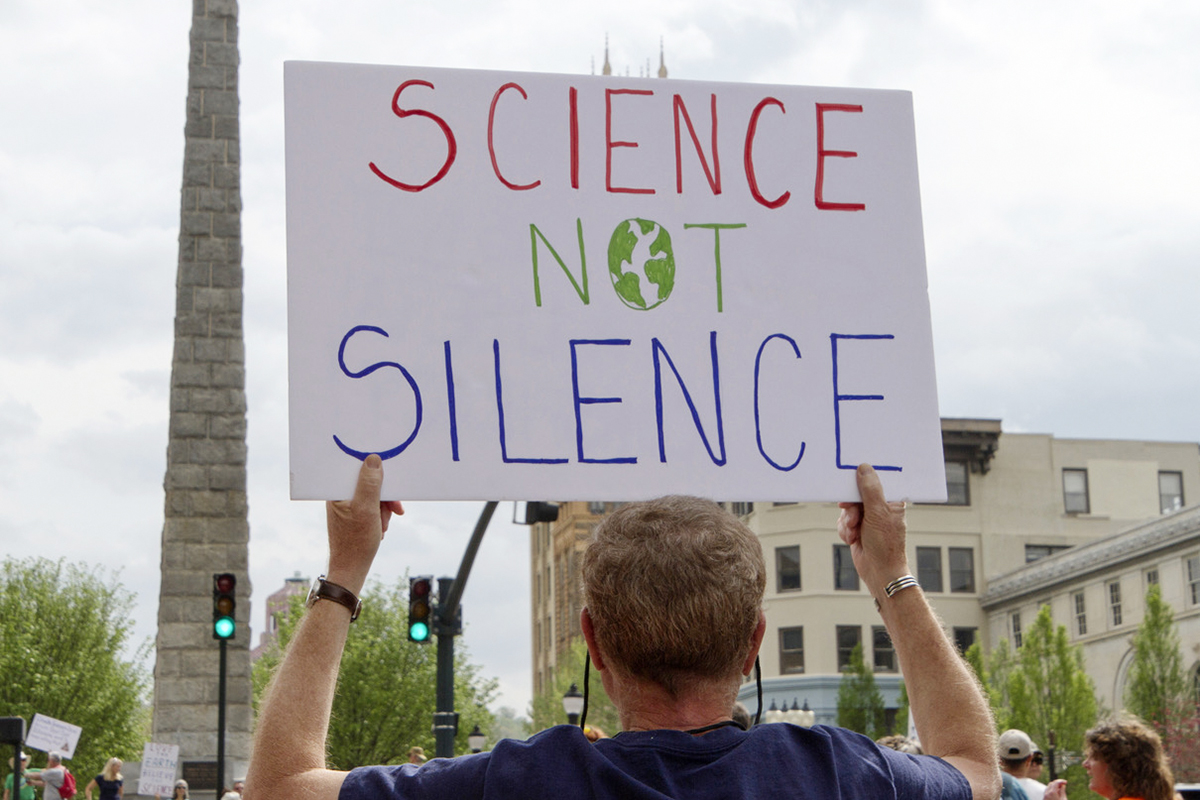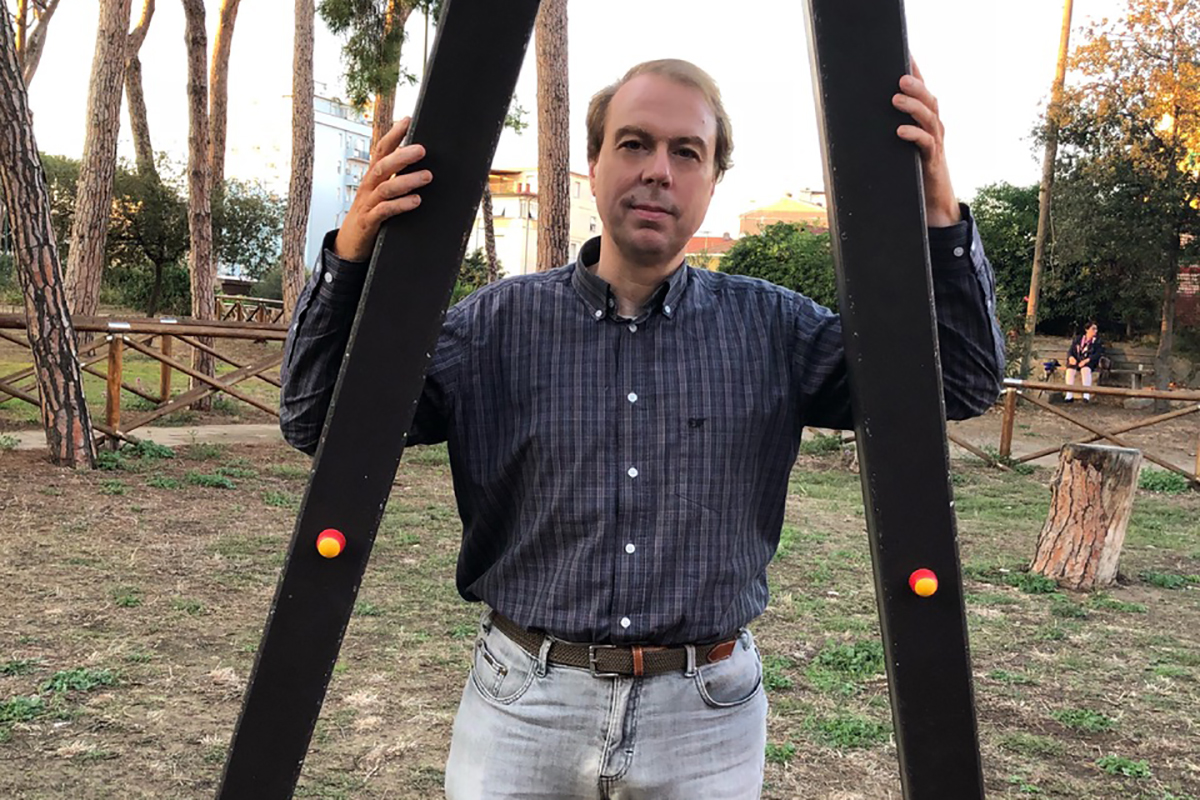Alessandro Strumia
Activists Must Stop Harassing Scientists
It’s becoming very difficult to argue with—let alone prove wrong—those scientists who claim it’s easier to hide or move abroad than endure the wrath of the enforcers of contemporary moral orthodoxy.

Editor’s note: This article was originally published in Le Point and has been translated by Holly Haahr.
Is this the end of the era of factual, scientific inquiry? In today’s labs, the line between affirmative action and ideological harassment is vanishingly thin. But prioritising scientists who have the correct opinions and tick the right identity boxes rather than because of the quality of their research can lead to real persecution.
“At the moment I prefer to stay anonymous,” explains an astrophysicist. “I am not proud of this, but I have to eat, and I am also responsible for the research opportunities of my students and my postdocs.” He hadn’t killed anyone. Rather, he had just chosen to move from Australia, the country where he earned his degrees and spent most of his career, to China. Why? Because, as a researcher, he has more freedom in China. As unbelievable as this may sound, it’s true. Indeed, for more and more scientists, the pressures in universities and other research institutions to be “politically correct” (for lack of a better term) are so great that going into exile in a non-democratic country, where dissidents disappear and religious minorities are sent to re-education camps, has become a stopgap solution for those who want to be left alone to pursue their research interests. “I left Australia because I am fed up with seeing job and grant opportunities dwindle for real astronomers,” he says.
Today, everyone, or almost everyone, agrees: harassment is a scourge to be fought, whether it’s sexual harassment or discrimination based on race or gender. But the consensus is much weaker when the persecuted—to the point of losing their desire to work or live in the West—are scientists who have been ostracized for “incorrect thinking,” regardless of the integrity, seriousness, or quality of their work.
Diversity Statement
“The political climate in Australian universities was one of the main reasons why I left,” says the astrophysicist.
It’s very hard to find a tenured job in astronomy if you don’t belong to a protected group (alas, I am a white hetero Christian male, bad luck!) and/or you don’t do enough visible activism (or at least enough virtue signaling) for a number of green-left issues. In China, it’s highly likely that Chinese astronomers are subject to the same political interference from the Communist Party, but at least a foreigner like me is left alone, and I can do astronomy in peace, without wasting my time with diversity initiatives. And I see first hand that astronomy jobs are still given to the best candidates regardless of gender, ethnic origin, etc. Unlike my Australian boss, my current Chinese boss has never berated me for not being socialist enough.
As elsewhere, the discrimination that pushed this physicist into academic exile is mostly the result of extremist affirmative action:
There are many levels of discrimination. At one level, you have an increasing number of jobs, fellowships and grants officially reserved for women and “first nation” people. At another level, for jobs open to white males, there will be special clauses in the application to make sure the candidates are sufficiently woke. For example, you’re required to write a “diversity statement”—which is nothing more than a pledge of allegiance—to illustrate how you have shown “leadership” when it comes to diversity issues in your previous jobs, your teaching and your research (organizing workshops, writing reports, giving talks for women-only audiences, etc.)
Ideological Prejudices
A few weeks ago, when I was writing an article for Le Point on contemporary Darwinism, two French cognitive science researchers asked me if they could speak off the record for a similar reason: having their names appear in the French weekly magazine, a publication judged “right-wing” by their colleagues, would be the equivalent of shooting themselves in the foot. Truth is, it’s becoming very difficult to argue with—let alone prove wrong—those scientists who claim it’s easier to hide or move abroad than endure the wrath of the enforcers of contemporary moral orthodoxy. One of the latest victims is Alessandro Strumia, Professor of Particle Physics at the University of Pisa and co-author of a paper on the Higgs boson.

On September 28, 2018 at CERN the physicist participated in a workshop entitled “High Energy Theory and Gender.” Based on the work he’d done over several months designing algorithms to improve the method for evaluating the impact of academic research, Strumia presented data—going back half a century—concerning publication bias, citation bias and hiring decisions in physics. According to his calculations, these data were very encouraging: women are not victims of gender discrimination in his discipline. And his findings are consistent with a major report published in October 2014 by the Association for Psychological Science (APS), which concluded that, despite frequent claims to the contrary, researchers in the field of psychology are judged according to their skills, not their identity—and the same is true of the geosciences, as well as engineering, economics, mathematics, and computer science. These are all scientific fields in which men are generally much more numerous than women and are suspected of being hotbeds of “systemic discrimination.” But according to Strumia, such an assessment would be based more on an ideological prejudice he labeled “cultural Marxism” than on tangible and measurable reality. Strumia argued that any discrimination in his field actually favors women, who tend to get jobs earlier in their careers, and with fewer publications and citations, than their male colleagues.
Two days later, the man hunt began on Twitter. Jessica Wade, a physicist affiliated with Imperial College London and an activist committed to greater female participation in STEM, accused Strumia (whom she wrongly identified as the head of CERN’s theory division) of giving a “sexist” presentation in which he had argued that female physicists were inferior (also wrong). After hundreds of likes and retweets, Wade managed to elicit a reaction from Marika Taylor, one of the seminar’s organizers, who confirmed that Strumia’s presentation included “personal attacks,” “erroneous facts,” and showed a “patent lack of professionalism.” Taylor tweeted: “We did not expect personal attacks, mistruths, false facts and blatant unprofessional conduct. Formal complaints will follow.”
Taylor, who is also head of the Department of Applied Mathematics at the University of Southampton, announced that formal complaints were imminent. A few hours later, despite Taylor promising that Strumia would be given an opportunity to defend himself before judgment was pronounced, the slides, audio, and video recordings of his talk were removed from CERN’s website. By the time the story reached the BBC, Strumia had become a dangerous misogynist who believes women are “not made” for physics.
Indignation Campaign
Which he never said, obviously. But neither the mainstream media, nor the army of woke physicists—who set up a website to denounce Strumia called “Particles For Justice”—nor the terrified administrators at CERN and the University of Pisa who immediately launched “investigations,” would be deterred by such nuances. In January, the University of Pisa accused Strumia of ethical violations and on March 7th CERN announced that it was not extending the physicist’s status as a “guest professor” and reaffirmed its “commitment to respect and diversity in the workplace” which it considered to be of “paramount importance.”
In its coverage of CERN’s decision, the BBC once again misrepresented Strumia’s comments, claiming that he said because physics was “invented by men” women have no place in the field. In fact, he acknowledged the contributions of women, including Marie Currie, in his presentation, as he explains on his blog:
Historically, modern physics was invented centuries ago by Galileo, Newton and other men. We know that at that time most people (especially women) did not even have the possibility to study. So men started building the necessary institutions developing a culture based on integrity and scientific merit. Nobody has privileged access, everybody is welcome to try and will be appreciated based on achievements, not based on gender/race/etc. Marie Curie is an example of how successful women have been appreciated in the physics community since many years now. Despite the fact that at the time it was unheard for a woman to even study physics, thanks to her outstanding work she was awarded not one, but two Nobel prizes.
Strumia was actually defending equality of opportunity in science. But this position, although in line with the fundamentals of the scientific method, is constantly being called into question by the Left, or even denounced as a “micro-aggression.” Strumia, like others scientists, deplores this authoritarianism masquerading as a concern for diversity, inclusion, and equality. As he states on his blog, he believes that these “slogans” can “conceal a political ideology that does not want equal opportunities, but equal outcomes, which means discriminations that make more equal than others those groups elected as victims by this politics. In practice, equal opportunities means checking that over-represented groups do not take advantage of their position. Equal outcomes means imposing quotas by attacking over-represented groups trough victimisation narratives and misunderstandings of human differences.” And by email, Strumia added that he “dared to speak” because he “valued [his] scientific integrity more than what [he] risked loosing.”

A “Witch-Hunt”
Janice Fiamengo, Professor of English Literature at the University of Ottawa and an expert on feminist attacks on freedom of speech, has been following the Strumia affair from the beginning. And she finds it depressing. By email, she told me she believes CERN’s decision “sends an unmistakable signal to the entire scientific community that the era of fact-based scientific investigation (perhaps always imperfectly pursued, and waning lately) has come to a decisive end.”
From this point forward, every scientist will know that he or she must ensure that all statements, practices, and research are feminist-approved. Any research touching on social issues, particularly related to the status of women (though including race, religion, and other hot-button issues), must now affirm the ideological orthodoxies of our day: that there is no difference in interest and ability between peoples or groups, and that any inequalities in achievement must be a result of pervasive injustices and discrimination against under-represented groups. Even where hard data exists to show that the injustices and discrimination do not exist (even where it can be shown that the “oppressed group” is actually advantaged, as in Strumia’s presentation), such data must be ignored, denied, and preferably denounced.
CERN has just announced that it pays obeisance to a fanatical group of ideologues rather than to the imperatives of truth-based investigation. This is a witch-hunt, pure and simple, and it shows how thoroughly entrenched the new Puritans have become in the once-impregnable physical sciences.
One last irony of this story: Galileo was once a professor at the University of Pisa.






